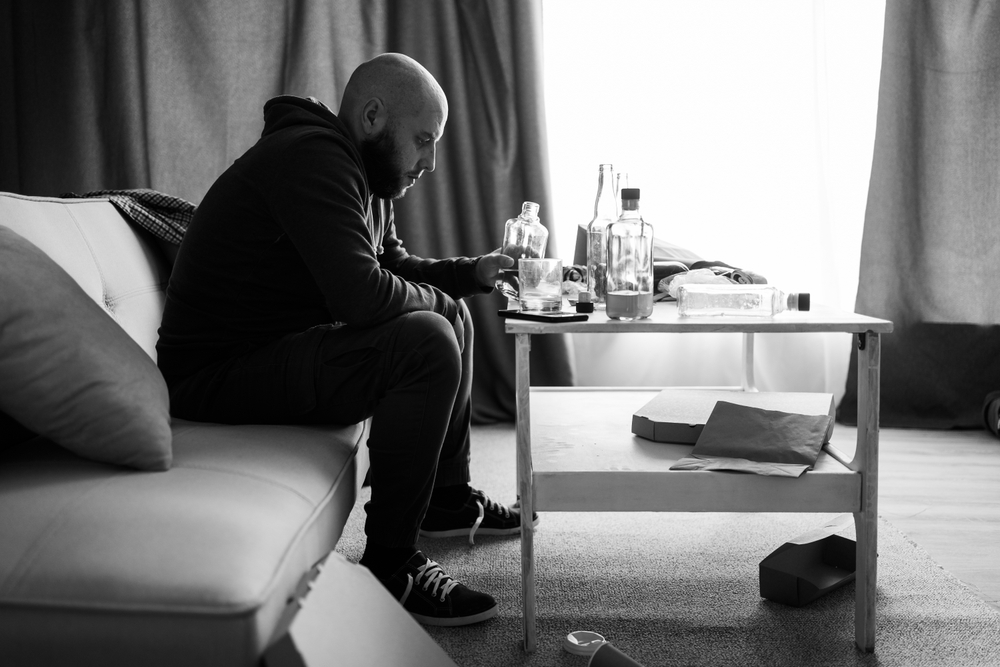


Let’s be honest. It’s hard to stay hopeful when everything feels like it’s falling apart. You open your phone, and it’s politics. You turn on the TV, and it’s worse. Your social media feeds are a constant doomscroll of fights and emotional responses — friends, family members, strangers yelling into the void. Everyone’s angry, everyone’s scared, and you’re just trying to hold it together. But between inflation, political polarization, and whatever new crisis just dropped, for many, it feels like the world is spiraling out of control.
But, you keep it moving during the day. You go to work, you pay bills, and you show up again the next day. But at night, when it’s quiet, the anxiety starts to creep in. What happens if the “wrong” person wins the next presidential election? What if policies change and your community suffers? What if your voice, your vote, doesn’t seem to matter anymore? This is political anxiety. And it’s a much bigger issue than most people think.

When the side you support loses, it doesn’t just feel like a policy shift. It feels like you lost. Like your values, your beliefs, your place in this country suddenly don’t count. It can be exhausting – especially for people living in swing states. Every ad feels like it’s targeting you. The pressure feels constant. Everyone wants something; your vote, your support, your attention, and you seemingly never get a break from it all.
Now add financial stress, economic hardship, climate grief, or just trying to raise a family in this chaos — and it can be a lot. You start to feel like you’re just surviving. Waiting for the next hit. That helplessness? That’s what drives people toward the edge. Not because they’re weak, but because they’re tired.
The cycle of political anxiety can mess with your brain in ways you don’t always notice right away. Your nervous system doesn’t know the difference between a real physical threat and constant mental stress, so it stays activated. Your body keeps pumping out stress hormones like cortisol, which, over time, messes with how you sleep, how you focus, and how you feel.
Eventually, your brain stops regulating itself properly. You feel disconnected, flat, and worn down. And when nothing feels good anymore, your brain looks for something... anything, to bring relief. Drugs and alcohol often feel like the fastest way to escape the tension, albiet briefly. According to one study, 21.9% to 24.1% of people with anxiety disorder report self-medication with alcohol and drugs.

Once substances enter the picture, the relief is fast but temporary. You may feel calmer, lighter, maybe even numb. That escape can become addictive, both chemically and emotionally. Your brain floods with dopamine, and you start associating that high with safety, control, and peace. But eventually, your brain starts to adapt. It notices that dopamine is being supplied artificially, so it reduces its own natural production.
Over time, this leads to dopamine depletion, which makes it harder for you to feel pleasure from everyday things like food, music, conversation, or even rest. Your reward system gets thrown off balance, and now the only thing that gives you a sense of relief is the substance itself. Tolerance kicks in when your brain becomes less sensitive to the same amount of the substance, so you need more of it to get the same effect.
Meanwhile, the parts of the brain responsible for judgment, impulse control, and emotional regulation—especially the prefrontal cortex—start to weaken. You may act impulsively, struggle with focus, or react more intensely to stress. The substance that once gave you a break from anxiety now amplifies it when you’re not using.
During this process, the body begins to depend on the substance just to maintain balance. This is physical and psychological dependence. Without the substance, withdrawal symptoms set in: irritability, restlessness, insomnia, and even panic. At this stage, you're no longer using to feel good. You're using it to avoid feeling worse. And because the root issue—election anxiety, hopelessness, and chronic stress—remains unresolved, the cycle deepens.

No, you can’t control election results. You can’t fix every policy. You can’t change the political climate overnight. But you can learn to protect your mental health and handle political disappointment in a healthier way.
Politics is one of the primary sources of depression and anxiety in today's society. It’s okay to disconnect – even from participating in a healthy political discussion. Take breaks from the news and social media every once in awhile. Not because you’re avoiding reality but because your brain needs recovery time. Boundaries aren’t ignorance. They’re survival.
Stress lives in your nervous system. Physical movement, walks, yoga, stretching, helps release it. You don’t need a gym. Just move.
Political tension breaks relationships, but healing starts with honest conversations. Talk to friends or family members who feel safe. You don’t need to agree on everything; you just need to feel heard.
Eat. Hydrate. Sleep. These basics sound simple, but they rebuild resilience. Caring for your body creates the foundation your mind needs to recover.
Hopelessness shrinks when you do something. Volunteer. Organize. Support a cause that matters. Even small actions within your own community can help build back your sense of purpose.

Sometimes, it’s deeper than a rough week or a bad election cycle. If you’ve been using substances to numb out, if you’re noticing a pattern that’s hard to break, or if you just feel like you’re not okay anymore, please don’t wait for it to get worse.
Reaching out for help doesn’t mean you’re broken. It means you’re ready to feel better. Therapy helps you unpack the pressure you’ve been carrying. It gives you tools to deal with stress and manage anxiety without needing to self-medicate with alcohol, illicit drugs or controlled substances.
Support groups are also critical as they allow you to connect with like-minded individuals. If you’re dealing with a substance use disorder, treatment options range from outpatient care to detox and structured support.
The first step? Say something. Even if it’s just, “I need help.”
At More Than Rehab (MTR), we understand how deeply political anxiety and chronic stress affect your mental health. We also know how easy it is to fall into unhealthy patterns when hope feels out of reach. Whether you’re struggling with anxiety, substance use disorders, or just feel stuck, you’re not alone—and you don’t have to figure it out on your own.
We offer comprehensive care that meets you where you are. No shame. No judgment. Just a path forward. You deserve to feel like yourself again. Let’s take the next step together.


